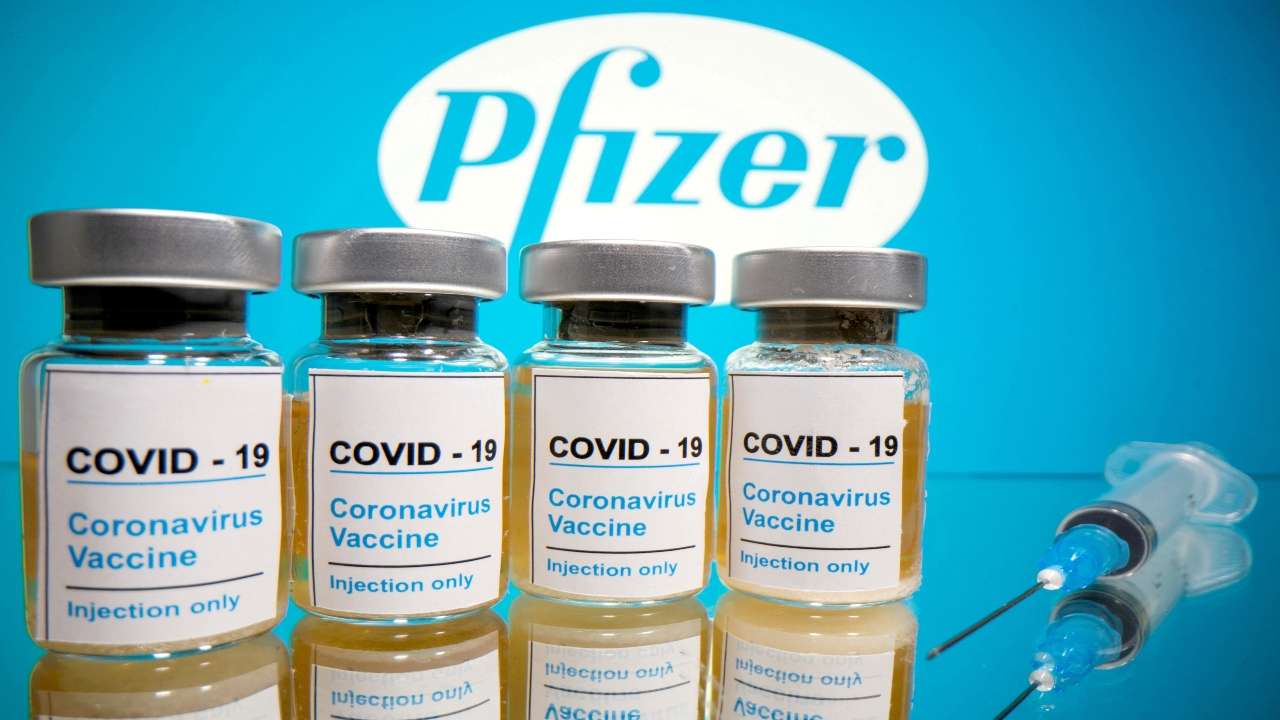
The UK on Wednesday became the first country to approve the Pfizer-BioNTech vaccine against COVID-19, paving the way for mass vaccinations against the deadly novel coronavirus from as early as next week.
The approval came after the country's Medicines and Healthcare products Regulatory Agency (MHRA) concluded that the vaccine has met its strict standards of safety, quality and effectiveness after months of rigorous clinical trials and a thorough analysis of the data.
"It's the protection of vaccines that will ultimately allow us to reclaim our lives and get the economy moving again," Britain's Prime Minister Boris Johnson tweeted after the approval of the vaccine.
The government has formally accepted the recommendation from the MHRA, which means the two-dose vaccine can be injected into arms of high-risk categories within days. Around 10 million doses should be available soon, with the first 800,000 arriving in the UK in the coming days.
Care home residents, health and care staff, the elderly and the clinically extremely vulnerable will receive the vaccine on a priority basis.
"The Joint Committee on Vaccinations and Immunisations (JCVI) will shortly publish its final advice for the priority groups to receive the vaccine," a UK Department of Health and Social Care spokesperson said in a statement.
Around 50 hospitals are on standby and vaccination centres in venues such as conference centres are being set up now, with military personnel being deployed to assist with the logistics.
Drugmakers Pfizer and BioNTech previously signed an agreement to supply a total of 40 million doses of their COVID-19 mRNA vaccine (BNT162b2) to the UK with delivery in 2020 and 2021.
The approval from the UK constitutes the first emergency use authorisation of the Pfizer-BioNTech Covid-19 vaccine following a worldwide Phase 3 trial which demonstrated a vaccine efficacy rate of 95%.
In a separate statement, Pfizer and BioNTech said they are anticipating further regulatory decisions across the globe in the coming days and weeks and are ready to deliver vaccine doses following potential regulatory authorisations or approvals.
"Today's Emergency Use Authorisation in the UK marks a historic moment in the fight against COVID-19. This authorisation is a goal we have been working toward since we first declared that science will win, and we applaud the MHRA for their ability to conduct a careful assessment and take timely action to help protect the people of the UK," said Albert Bourla, Chairman and Chief Executive Officer, Pfizer.
The companies have already filed a request for emergency use authorisation with the US Food and Drug Administration (FDA).
Based on current projections, Pfizer's and BioNTech's combined manufacturing network has the potential to supply globally up to 50 million vaccine doses in 2020 and up to 1.3 billion doses by the end of 2021 -- subject to manufacturing capacity and regulatory approval or authorisation.
The Pfizer/BionTech formula is an mRNA vaccine that uses a tiny fragment of genetic code from the pandemic virus to teach the body how to fight COVID-19 and build immunity. An mRNA vaccine has never been approved for use in humans before, with people only receiving them in clinical trials so far.
Pfizer said it has an established infrastructure to supply the vaccine worldwide, including distribution hubs that can store vaccine doses for up to six months, although the company does not expect that the product will need to be stored at any location for more than 30 days due to the high demand.
Pfizer and BioNTech had reported final trial results on November 18 that showed its vaccine was 95% effective in preventing COVID-19, with no major safety concerns.
It is the fastest ever vaccine to go from concept to reality, taking only 10 months to follow the same developmental steps that normally span a decade, the BBC reported.
(With agency inputs)